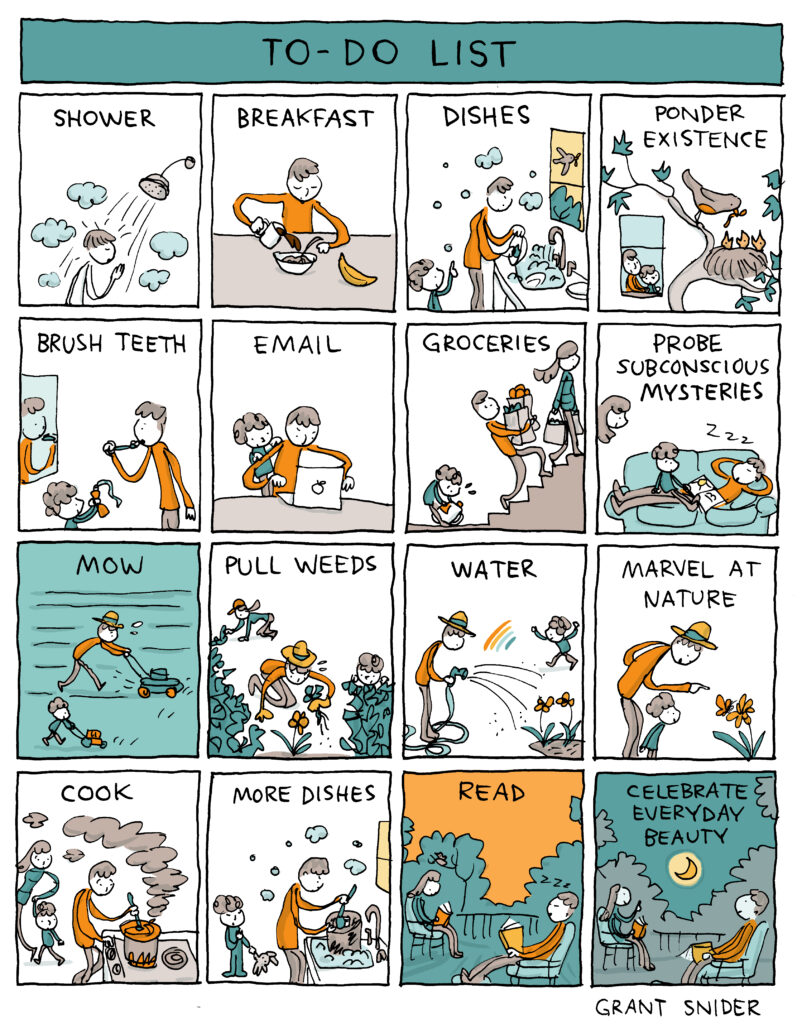Transformative. Life-changing. Ecstatic. Revelatory. How can we describe the peak experiences of life? Do they only happen to other people? Or was it just me who forgot to tap into something profound on vacation?
There are those who obsessively chase the highs of life. And then, it seems, there’s the rest of us. I asked someone who has studied Western culture’s ecstatic experiences for a decade for his thoughts. Jules Evans is a historian of ideas and practical philosopher whose research covers the history, philosophy, and psychology of well-being — how different cultures define and seek human flourishing. He confirms something many of us might have suspected: Despite our most frantic efforts and online personae, real life just isn’t always that exciting.
“For four years I tried various ‘ecstatic techniques,’ or methods that Westerners use to go beyond their ordinary selves to find a connection to something greater,” Evans told me, a reflection that would guide his work to The Art of Losing Control (2017), in which he explored Western culture’s engagement with the concept.
Sift through the various ways of describing peak experiences and you might get something like a transportation or emotion that leads a person outside their “normal, mundane sphere of existence.” Varying degrees of awe and ecstasy, profound insight, unmatched joy, transcendence.
“Initially, I immersed myself in charismatic Christianity,” Evans continued. “I was fascinated by how it was one of the few subcultures where ecstatic experiences were still welcomed and validated. In the church I went to, people often had experiences, or Holy Spirit encounters, when they might feel miraculously healed, filled with joy, or given prophetic insights. But the ecstasy faded. There was a long, difficult come-down for a year or so before I stopped going.”
Since the Enlightenment, Evans explains, Western society has demonstrated a particular aversion to this kind of experience, no matter how it arrives. Yet it was embraced in the later Romantic period. And today a renaissance brews, he explains: “It seems that Western culture is open to these experiences again, hungrily seeking them, in fact, to cope with mental distress or a lack of hope and meaning.” But Western culture lacks “ecstatic literacy,” he says, “swinging between aversion and over-attachment.”
What we do with our significant experiences is where the balance lies, Evans writes at philosophyforlife.org, for example that “most religious traditions suggest that occasional ecstatic experiences need to be followed up by daily practice of some kind.”
For Christians, this is old wisdom. The liturgical calendar observed by some Christian traditions makes space for this work. Ordinary Time begins the Monday after Pentecost and ends at the first Sunday of Advent, this year May 29 through December 2, and An Episcopal Dictionary says it “can be understood in terms of the living out of Christian faith and the meaning of Christ’s resurrection in ordinary life.”
“I am trying to enjoy ordinary life without desperately seeking to transcend it.” Because, Evans says, this much is true: “There is a holiness to the everyday as well.”






